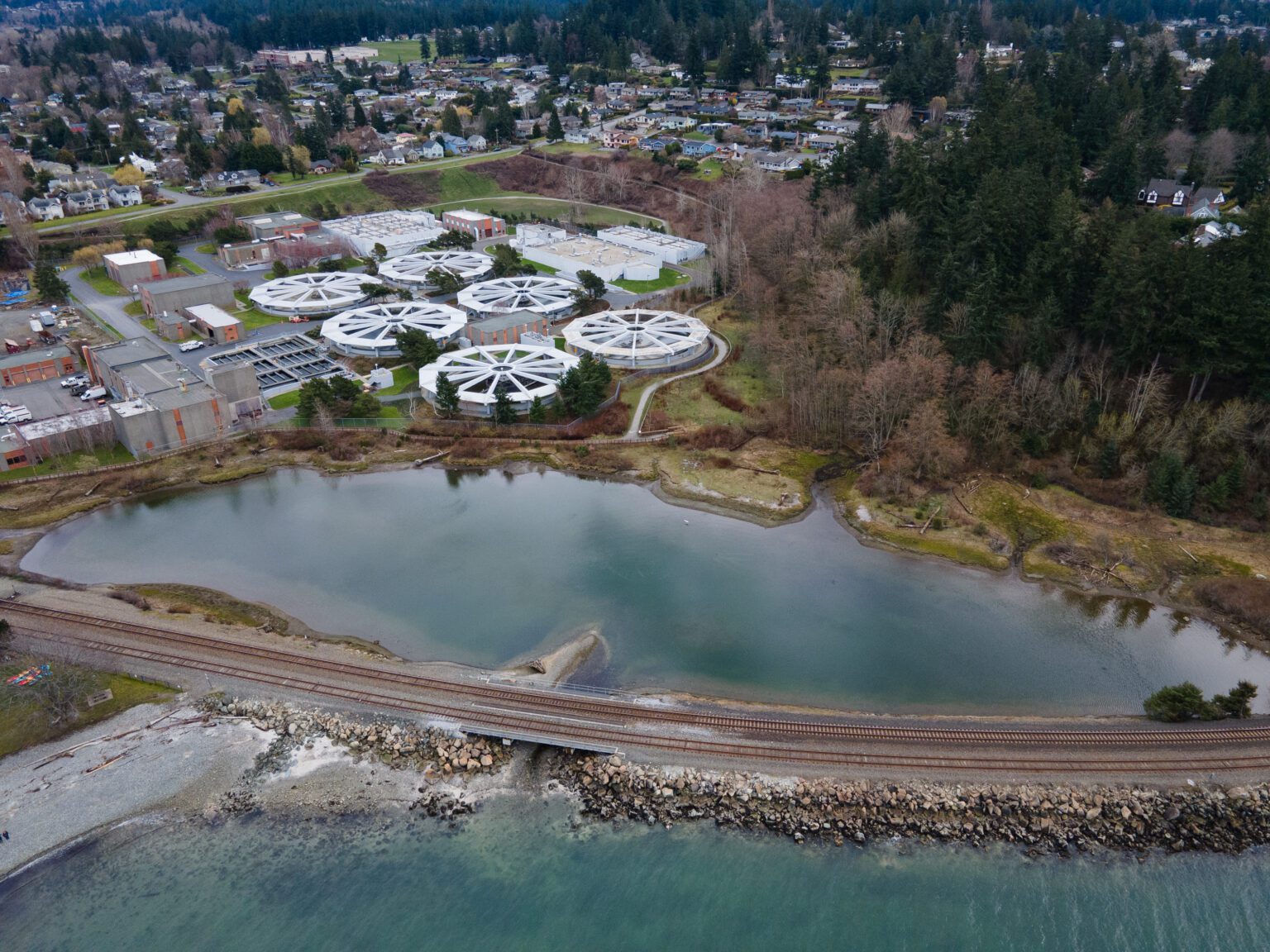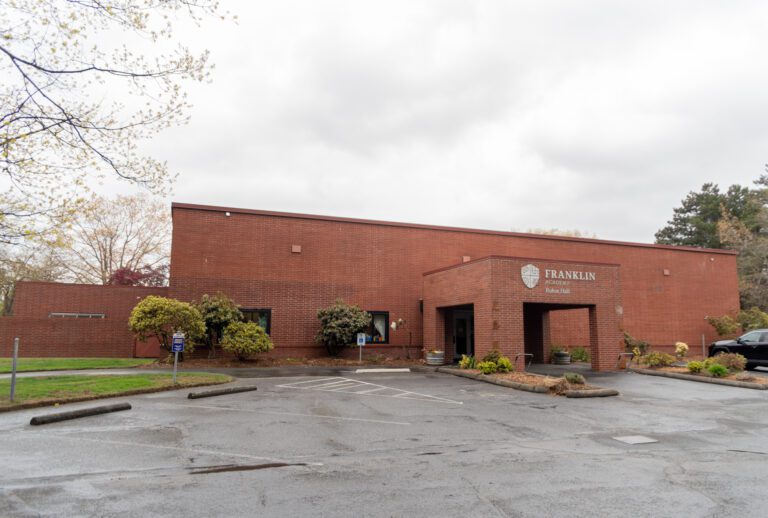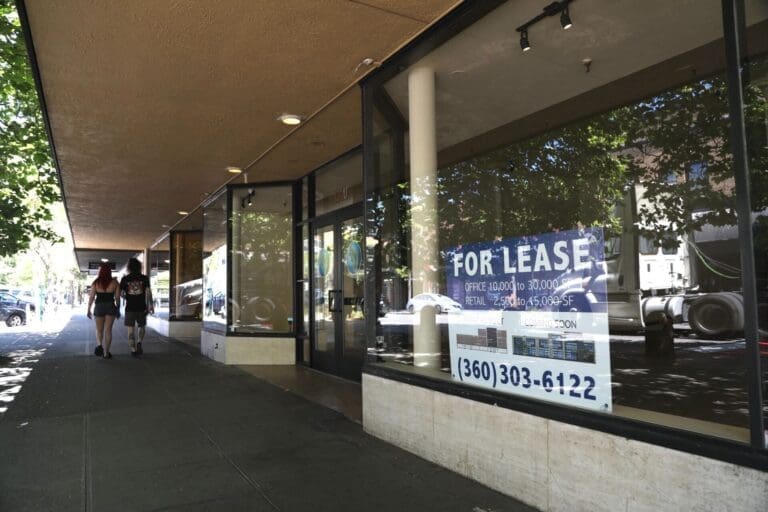Construction at Bellingham’s Post Point Wastewater Treatment Plant remains uncertain following rising costs and shifting administrative priorities, Mayor Seth Fleetwood said Monday morning.
The surprise announcement, which came during Monday’s Public Works and Natural Resources Committee meeting, called for city council members to halt work on the anaerobic digester aspect of Post Point construction, a shift from the mayor’s early support.
Fleetwood said he proposed the halt to “refocus our efforts on projects that preserve our affordability,” and hopes to concentrate on existing incineration methods.
Anaerobic digesters break down dewatered sludge into nutrient-rich “biosolids,” which can then be converted into fertilizer or other byproducts, and were initially approved by the council in April.
The Fleetwood administration’s position on the digesters changed in an effort to “direct our focus to wastewater system upgrades that are more affordable for our community, that emphasize protecting water quality in the Salish Sea, and that promote community-wide climate actions,” Bellingham Communications Director Janice Keller said in an email after the announcement. “It is a proposed redirection, part of the City’s ongoing responsibility to use deliberative, transparent public processes to explore solutions to important community needs.”
The Post Point update project, which could cost more than $1 billion in the coming years, will be a complete revamp of the wastewater management system in Bellingham and is desperately needed as the present site approaches failure.
The current system relies on incinerators built in 1974 and 1994 according to documents from the Northwest Clean Air Agency. Both incinerators have far exceeded their expected lifespans, and are maintained and repaired using parts purchased on eBay, current employees said.
“These incinerators have got to go,” council member Michael Lilliquist said after the announcement. “We already have in mind the fact that we’re going to be doing life support services for a couple of years.”
Now, Lilliquist said, the real question is what replaces the aging system.
“What replaces those incinerators when we finally mothball them completely? Will it be brand-new incinerators, or will it be a different technology entirely?” he asked. “Whatever we do in the future, it will still have to be different from what we’re doing now.”
Though approved in April, the council began exploring anaerobic digesters in 2017 when members decided updating the current incinerators wasn’t the best, most environmentally friendly approach.
“Back in 2017, we decided it wasn’t worth replacing the incinerators with newer, better ones, because there was another way to go entirely,” Lilliquist said. “This is a 180-pivot back to 2017 saying, well, if we put in all-new incinerators, how would that look? What would that cost? What would the benefits and disadvantages be of going that way?”
The digesters are a more environmentally friendly way to target greenhouse gas emissions, though their implementation could add as much as $430 million to the Post Point updates, almost half of the anticipated costs, Fleetwood said during his announcement.
Environmentalists supported the announcement.
“This gives us an opportunity to reevaluate a better path forward,” said Kirsten McDade, the pollution prevention specialist at RE Sources, a local environmental nonprofit. “A lot has happened since 2017, and this gives us a moment to take in that new information from a toxicology perspective, but also from an affordability perspective, to really look at a project in a different way and potentially find something that is protective of human and environmental health as well as affordable.”
McDade said there isn’t a “one-size-fits-all solution” at Post Point, but that thermal chemical treatments like gasification and pyrolysis might be another avenue council members can explore.
“It’s hard to know that if we were to replace the anaerobic digesters with another technology if it would be a similar product cost or if it might cost more,” McDade said. “If the city did stick with the anaerobic digesters, though, there’s hidden costs along the way, and particularly, there could be regulatory hiccups.”
The high cost of the digesters contributed to the mayor’s decision to switch gears.
“We have enormously improved clarity around project cost,” Fleetwood said during his announcement. “This is going to require renewals and investments into existing incinerators at a cost that we believe we can handle with existing funding that the city already maintains.”
City Council members aren’t ready to get on board with the mayor’s decision.
“I don’t know if the council is ready to join him in [this] decision yet,” Lilliquist said Monday. “Nothing is going to be cheap. The question is, if we go the least expensive route, is that actually going to align with community values?”
The announcement came after Fleetwood had several conversations with city staff members leading the project, including Public Works Director Eric Johnston, who has previously discussed the high cost of the project.
“These projects are getting more and more expensive, which will put a greater impact, a greater burden, onto our ratepayers, who will need to bear the cost of these types of [improvements],” Johnston told city council members during an Aug. 1 meeting. “That’s weighing heavily on the project team’s mind, and I know it’s weighing heavily on the mayor’s mind as well.”
Johnston did not immediately respond to a request for comment following the mayor’s announcement.
Council members will be able to discuss the future of the Post Point project and anaerobic digestion during a Sept. 12 meeting, where they hope to answer questions relating to costs and alternatives to the approved digestion process.
“[The mayor] pointed out pretty well what the concerns are, but how are we pivoting, and what are the options we’re looking at?” council member Lisa Anderson asked. “We’re going to have to quickly pivot to a new option because $1 billion is not affordable to this community. It would be nice to have a presentation of what some of our other options would be for the pathway ahead and what staff are recommending in lieu of digestion.”
Several questions remain unanswered at this point, including what contracts may be voided by abandoning the digestion process or the costs already incurred by the city throughout the process, though Keller said they will compile that information for the Sept. 12 meeting.




